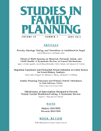
STUDIES IN FAMILY PLANNING
Scope & Guideline
Pioneering discoveries in demography and family planning.
Introduction
Aims and Scopes
- Contraceptive Use and Preferences:
The journal focuses on research analyzing contraceptive methods, preferences, and the factors influencing their adoption and continuation among diverse populations. - Reproductive Health Dynamics:
It investigates the complex interplay between reproductive health outcomes, fertility intentions, and social determinants, particularly in low- and middle-income countries. - Measurement and Methodology Innovations:
The journal emphasizes the development and validation of new measurement tools and methodologies for assessing family planning needs, service delivery, and reproductive health indicators. - Policy and Programmatic Implications:
Research published in the journal often discusses the implications of findings for family planning policies and programs, aiming to improve access to and quality of reproductive health services. - Gender and Socio-Cultural Influences:
It explores the impact of gender norms, social networks, and cultural beliefs on reproductive health behaviors and decision-making processes.
Trending and Emerging
- Digital Health and Technology in Family Planning:
An increasing number of studies are examining the role of digital health tools, such as mobile apps for contraceptive tracking, indicating a trend towards harnessing technology to improve family planning services. - Contraceptive Autonomy and Agency:
There is a notable rise in research focused on measuring women's autonomy in contraceptive decision-making, reflecting a growing emphasis on women's rights and empowerment in reproductive health. - Impact of Socio-Economic Crises on Reproductive Health:
Emerging studies are investigating how socio-economic crises, such as the COVID-19 pandemic, influence contraceptive use and fertility preferences, highlighting the need for adaptive family planning strategies. - Intersection of Climate Change and Reproductive Health:
Recent publications are starting to explore the connections between environmental factors, such as droughts, and reproductive health choices, indicating an interdisciplinary approach to family planning research. - Unintended Pregnancy and Conditional Contraceptive Needs:
Research is increasingly focusing on nuanced understandings of unintended pregnancies and the conditional factors influencing contraceptive use and preferences among women.
Declining or Waning
- Emergency Contraception:
Research on emergency contraception has seen a decline, potentially due to earlier comprehensive studies that have established baseline knowledge and understanding of its use and effectiveness. - Child Marriage and Fertility Linkages:
Though still relevant, the frequency of studies specifically linking child marriage to fertility outcomes appears to be decreasing, possibly as researchers shift focus to broader socio-economic factors affecting fertility. - Abortion Incidence Estimation Techniques:
The exploration of methodologies for estimating abortion incidence is becoming less frequent, indicating a potential shift towards more direct studies on abortion access and policy implications. - Male Involvement in Family Planning:
While male involvement remains a critical area, the number of studies specifically targeting men's roles in contraceptive decision-making has diminished, suggesting a move towards more integrated approaches. - Longitudinal Studies on Fertility Trends:
The focus on long-term longitudinal studies specifically tracking fertility trends may be waning, as researchers increasingly prioritize cross-sectional studies that provide immediate insights.
Similar Journals
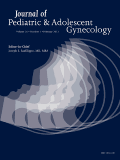
Journal of Pediatric and Adolescent Gynecology
Transforming Healthcare: Scholarly Perspectives for YouthThe Journal of Pediatric and Adolescent Gynecology, published by Elsevier Science Inc, serves as a crucial platform for researchers and practitioners in the fields of pediatrics, obstetrics, and gynecology. With an ISSN of 1083-3188 and an E-ISSN of 1873-4332, this esteemed journal has been disseminating knowledge since 1996, with contributions expected to continue through 2024. Positioned in the Q2 category across multiple specialties including Medicine (miscellaneous), Obstetrics and Gynecology, and Pediatrics, Perinatology and Child Health, it caters to a growing need for scholarly discourse in the health care of young females. The journal maintains a strong impact factor and ranks notably in its category on Scopus, with a significant percentile indicating its influence and relevance within the academic community. Although it does not currently operate as an open-access journal, it offers vital insights and research findings that are essential for shaping practice and advancing knowledge in this specialized area. Engaging with this journal not only aids in staying abreast of the latest developments but also fosters collaboration and innovation in pediatric and adolescent health care.
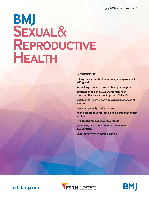
BMJ Sexual & Reproductive Health
Empowering the future of obstetrics and gynecology.BMJ Sexual & Reproductive Health is a premier academic journal published by the esteemed BMJ Publishing Group in the United Kingdom. With an ISSN of 2515-1991 and E-ISSN of 2515-2009, this journal stands at the forefront of critical research in the fields of Obstetrics and Gynecology and Reproductive Medicine, reflecting its commitment to delivering high-quality, peer-reviewed content. Recognized for its significant impact, the journal holds a Q1 classification in both disciplines for 2023, with Scopus rankings of 49th in Obstetrics and Gynecology and 26th in Reproductive Medicine, placing it within the top quartiles of these fields. The journal aims to bridge the gap between cutting-edge research and practical application, providing a platform for researchers, professionals, and students to engage with groundbreaking findings and stay updated on best practices in sexual and reproductive health. As an Open Access journal, it ensures that knowledge is freely available to a global audience, further promoting the advancement of science and health care practices.

Comparative Population Studies
Bridging gaps in population studies for informed policy-making.Comparative Population Studies is an esteemed open-access journal published by the BUNDESINSTITUT BEVOELKERUNGSFORSCHUNG in Germany, dedicated to advancing the field of demography. Since its launch and transition to open access in 2010, the journal has provided a platform for researchers to share innovative population studies, promoting a deeper understanding of demographic trends and patterns globally. With an impressive Q2 rank in Demography within the 2023 quartile categories and a commendable rank #61 out of 139 in Scopus' Social Sciences Demography classification, it plays a vital role in disseminating rigorous research. The journal covers a range of topics related to population dynamics, migration, and social implications, making it invaluable to academics, professionals, and students in the field. With an emphasis on comparative studies, Comparative Population Studies not only fosters scholarly dialogue but also enhances policy-making and economic planning. Located at Friedrich-Ebert-Allee 4, Wiesbaden 65185, Germany, the journal continues to be a prominent resource for those eager to engage with the latest demographic research.
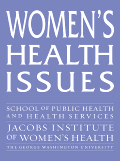
WOMENS HEALTH ISSUES
Advancing Knowledge for Healthier Futures.WOMEN'S HEALTH ISSUES, published by Elsevier Science Inc, stands as a premier journal within the realm of women’s health research, offering a vital platform for the dissemination of cutting-edge studies. As an influential publication with an impressive reputation, it encompasses critical areas such as social sciences, maternity and midwifery, obstetrics and gynecology, and public health. With a remarkable Q1 ranking across various categories in 2023, including Nursing, Maternity and Midwifery and Obstetrics and Gynecology, this journal is recognized for its substantial impact on advancing knowledge in women's health issues. Researchers and healthcare professionals will find valuable insights and empirical studies that inform practice and policy. Although the journal is not Open Access, it provides a wealth of information originating from rigorous research and expert reviews aimed at enhancing women’s health outcomes. To explore a comprehensive range of topics, this journal spans a convergence period from 1990 to 2024, continually evolving with the field's advancements.
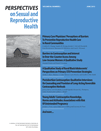
PERSPECTIVES ON SEXUAL AND REPRODUCTIVE HEALTH
Uniting disciplines for comprehensive health solutions.PERSPECTIVES ON SEXUAL AND REPRODUCTIVE HEALTH is a renowned scholarly journal published by Wiley, focusing on the comprehensive fields of reproductive health and sexual wellness. With an impressive 2023 impact factor placing it in the Q1 category across multiple disciplines—including Obstetrics and Gynecology, Public Health, and Sociology and Political Science—this interdisciplinary journal offers a vital platform for researchers, professionals, and students dedicated to advancing knowledge and practice in these critical areas. Established in 1996 and converging through to 2024, the journal provides open access options, ensuring wide dissemination of its impactful articles. The journal combines rigorous empirical research with significant policy discussions, making it a crucial resource for those committed to improving sexual and reproductive health outcomes globally.

Journal of Obstetrics and Gynecology of India
Empowering Clinicians with Cutting-Edge InsightsJournal of Obstetrics and Gynecology of India is a leading publication dedicated to the advancement and dissemination of research in the fields of obstetrics and gynecology. Published by SPRINGER INDIA, this journal serves as a vital resource for researchers, clinicians, and students who are keen to stay abreast of the latest developments and innovations in women's health. With an impact factor that reflects its growing influence within the academic community, the journal provides a platform for original research articles, reviews, and clinical studies that contribute to the understanding of complex issues in obstetrics and gynecology. Operating under a Q3 quartile classification for 2023, it ranks 134 out of 209 in the Scopus index, indicating its ongoing commitment to quality and relevance in the medical field. Although currently not open access, the journal encourages the exchange of scientific knowledge and practice, paving the way for future advancements in patient care and women's health. With the convergence of innovative research and clinical practice from 2010 to 2024, the Journal of Obstetrics and Gynecology of India remains a critical resource for those seeking to enhance their expertise and impact in obstetric and gynecological sciences.
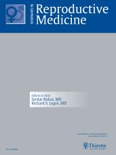
SEMINARS IN REPRODUCTIVE MEDICINE
Fostering Collaboration in Reproductive ResearchSEMINARS IN REPRODUCTIVE MEDICINE is a leading peer-reviewed journal dedicated to exploring the complexities of human reproduction, offering insightful perspectives that encompass advances in reproductive endocrinology, obstetrics, and gynecology. Published by THIEME MEDICAL PUBL INC, this esteemed journal holds a notable spot in multiple Scopus categories, ranking 21st in Reproductive Medicine and 38th in Obstetrics and Gynecology, with an impressive impact in the Q1 and Q2 quartiles. With its commitment to high-quality research and clinical implications, the journal serves as a vital resource for practitioners, researchers, and students alike, fostering an environment of innovation and collaboration in the rapidly evolving reproductive health landscape. SEMINARS IN REPRODUCTIVE MEDICINE also offers convenient open access options, ensuring that its contributions are readily available to the global academic community. For over two decades, from its establishment in 1999 to the present, it has retained a pivotal role in disseminating critical findings that inform both clinical practice and future research efforts.
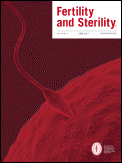
FERTILITY AND STERILITY
Advancing knowledge in reproductive health.Fertility and Sterility is a prestigious peer-reviewed journal dedicated to the fields of obstetrics, gynecology, and reproductive medicine. Published by Elsevier Science Inc, this journal has been a cornerstone of scientific discourse since its inception in 1950 and is set to continue its influential coverage of cutting-edge research until 2024. Boasting an impressive impact factor, Fertility and Sterility is ranked among the top-tier journals in its category, holding Q1 status in both Obstetrics and Gynecology and Reproductive Medicine. With Scopus rankings placing it in the 97th and 96th percentiles respectively, the publication serves as a vital resource for researchers, clinicians, and students who seek to advance their understanding of fertility issues and reproductive health. Although it does not currently offer open access options, the journal remains committed to disseminating high-quality research and innovative solutions to the complex challenges in reproduction, empowering professionals and scholars to make meaningful contributions in their fields.
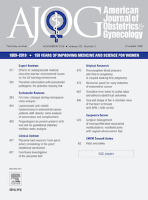
AMERICAN JOURNAL OF OBSTETRICS AND GYNECOLOGY
Bridging Research and Clinical Excellence in Women's HealthThe American Journal of Obstetrics and Gynecology, established in 1920 and published by Mosby-Elsevier, stands as a premier platform for the dissemination of critical research in the field of obstetrics and gynecology. With an impressive Scopus rank of #2 out of 209 journals in its category, placing it in the 99th percentile, this journal is recognized for its significant contributions to clinical practice and academia, as evidenced by its Q1 quartile status for 2023. Aimed at researchers, healthcare professionals, and students, the journal features a wide array of articles addressing contemporary issues, innovative research findings, and evolving practices in women's health and reproductive medicine. Although it does not currently offer open access options, it remains a vital resource for those seeking in-depth analysis and insights within this crucial medical specialty. By bridging the gap between research and clinical implementation, the American Journal of Obstetrics and Gynecology continues to play a pivotal role in shaping the future of obstetric and gynecologic care.
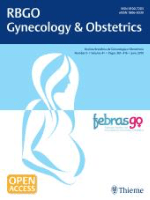
Revista Brasileira de Ginecologia e Obstetricia
Empowering professionals with accessible knowledge.Revista Brasileira de Ginecologia e Obstetricia is a renowned academic journal based in Brazil, published by GEORG THIEME VERLAG KG, dedicated to advancing research in the fields of gynecology and obstetrics. With an Open Access policy since 1998, this journal ensures that critical findings and insights remain accessible to a global audience, fostering collaboration and knowledge sharing among healthcare professionals and researchers. The journal has maintained a respectable position within its field, currently ranked Q3 in Obstetrics and Gynecology according to the 2023 category quartiles, and holds a Scopus rank of 122 out of 209, placing it in the 41st percentile. Covering a wide array of topics pertinent to women's health, the Revista Brasileira de Ginecologia e Obstetricia serves as a vital platform for disseminating new research, clinical practices, and reviews, contributing to the enhanced understanding and treatment of gynecological and obstetrical conditions. The journal not only supports academic rigor but also empowers professionals and students in their pursuit of excellence in women's health.